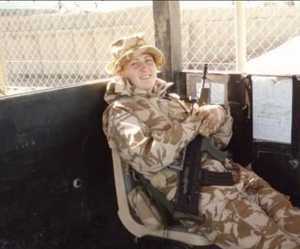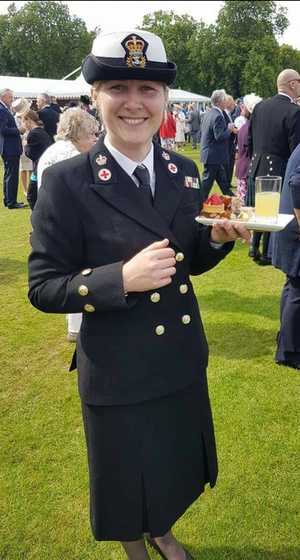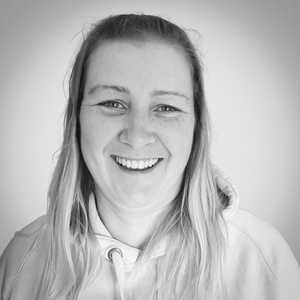R.N to C.M - My career journey from Royal Navy to Circle Case Management



Case Manager Lynsay Harris shares her story of career progression from NHS to Royal Navy to Circle Case Management.
I wanted more than just going to work as a nurse and wanted to expand my friendship circle.
So after returning home to live with my parents after university I decided to join the military.
I considered all 3 services and have always had an affinity for water so the Royal Navy became my first choice (also the fitness levels were lower!!) From the point of applying at the careers office to going on basic training was about 9 months. I was on basic training for 8 weeks and I made some brilliant friends and connections with people like no other, what I didn't know at this point was that those connections were just the beginning.
From basic training I went to join MDHU Derriford, a Ministry of Defence Hospital Unit.
I went from being spoon-fed all information, back to being able to decide for myself about when to eat, sleep and what to wear but in a completely alien environment!
The adjustment to military life was a steep curve.
I also was working in a surgical military ward (military management not patients). I stayed within this environment from July 2006 - October 2008.
I also deployed to Iraq for 3 months on a medical ward. This was my first deployment. We were attached to an army medical regiment. We did some pre training with them to get to know people and there was a number of us that hadn't deployed before.
I have very varied memories of Iraq, we were getting mortared daily, the hospital was a tent, we had to carry or wear body armour everywhere and when we went outside the hospital complex we had to carry our weapon.
However... all this very quickly became 'normal'.
Alongside this we as a ward made Christmas decorations to compete with the rest of the hospital, we had the weekly 'pub quiz', we learnt how to ballroom dance, we had BBQs and daily exercise classes.
I remember dragging patients onto the floor during a mortar attack and continuing with the normal routine of ward round/observations and dressings whilst on the floor. We were very lucky that no-one was injured from the hospital group or the people I knew during our time in Iraq.
Not all were so lucky during the mortar attacks and all the healthcare staff had to deal with these aftermath.
After returning to the NHS for a short period I deployed for the second time. This time to Afghanistan.
This was with the Royal Navy this time. Initially I did compare the 2 deployments however afghan was very different. We didn't have to deal with the mortaring however clinically it was a lot more challenging. We had a lot of very acutely ill patients, many post op or coming very quickly from Emergency Department, as they would need to make space.
Time management, prioritisation and good diverse clinical skills were needed on this deployment.
I then remained in the UK, returned to university to do my Master of Sciences and then started a job as an instructor for medical assistants training. I did this for 2 years. This pushed my communication skills forward as I did presentations to a number of different groups but I had to maintain my approachability with junior ranks to enable them to benefit during training.
From this role, I rejoined clinical and went to Headley Court, the rehab establishment for military personnel. Whilst there I deployed to Sierra Leone to help with providing aid during the Ebola crisis.
This again was a very different deployment and I was in a management position alongside performing my clinical role. I was also completing a teaching role and we all lived together onboard the RFA Argus, adding another dimension to the role and living arrangements.
Balancing the clinical side of military life with other youngsters was something that I managed very well. I regularly completed adventure training which allowed me to learn or try new sports such as climbing, stand up paddle boarding and skiing.
I also walked to Everest base camp and completed as a member of the field gun team for 2 different teams, as well as playing netball for my MDHU. A lot of these opportunities I sought out and with doing them expanded a lot within my personality.
The military has given me a lot of opportunities to become the person and nurse that I am today. it has improved some of the things in my personality such as my communication in certain scenarios and to feel less intimidated by people. It has also made me have more confidence in my convictions and if I think something the RN has enabled me with the skills to communicate effectively. I was also supported to complete further education.
This has given me the opportunity to work within a lot of clinical environments across the military, ensuring that I had a well rounded knowledge and experience with the ability to work within any environment.
Being in the Royal Navy has been, the majority of the time, a positive rewarding experience where I have made some of my best friends and carved out the person I am today.
If I was to have my time over, I would join the Royal Navy again.
Posted by Nicola Kelly on June 7th 2022

